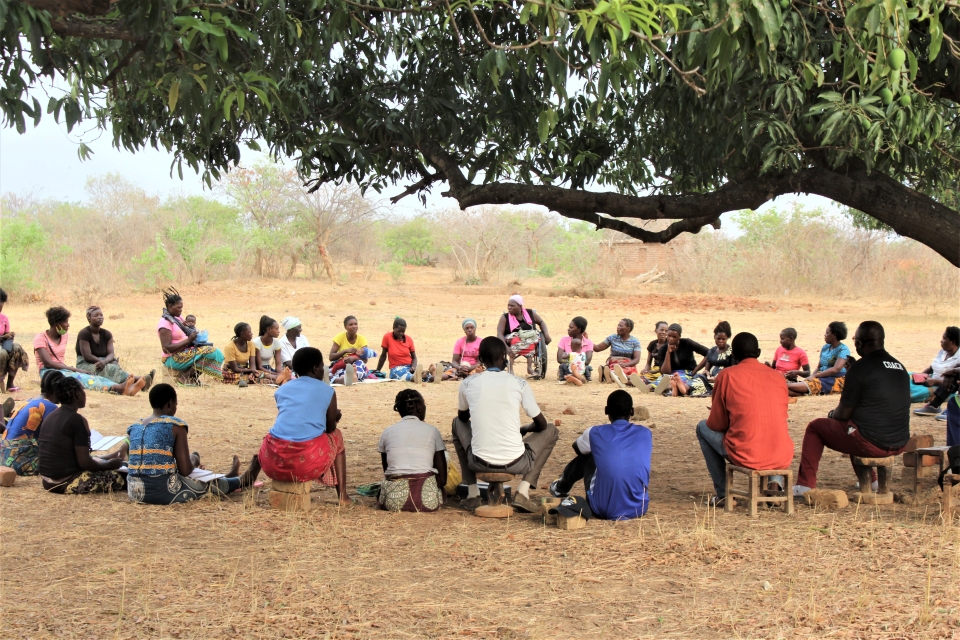The Smallholder Farmer Support Programme brings rural farmers together in Farmers’ Clubs for them to improve their agricultural production and create resilience against the effects of climate change in regions where insufficient rainfall is a recurring issue.
Working with over 10,000 farmers through established Farmers' Clubs across these areas, the project has substantially contributed to efforts to mitigate the effects of climate change among member farmers.
The project does this through supporting farmers to;
- adopt conservation agriculture (an average over 9,800 hectares of land prepared under conservation agriculture annually with households planting an average of three different crops).
- improve market access (trained community-based crop aggregators to provide input and output markets to fellow farmers)
- promote financial inclusion among farmers through community savings for change with membershing of over 10,000 (total annual savings average over K10.4m).
- improve post-harvest crop management
- improve access to insurance products and services
- improve access to credit from formal and informal lenders
__________________________________________________
KEY FIGURES
- 10,393 Smallholder Farmers
- 257 Farmers’ Clubs
- 72 Micro aggregators
- 561 Savings groups
- 1,050 Lead Farmers
___________________________________________________
- Project Full name: Smallholder Farmer Support Project
- Principal Partner(s): UN WFP
- Other Partner(s): Ministry of Agricultural, Ministry of Livestock, Ministry of Community Development and Social Services and the Metrology department.
- Location: Pemba, Monze, Namwala and Gwembe districts of Southern Province.
